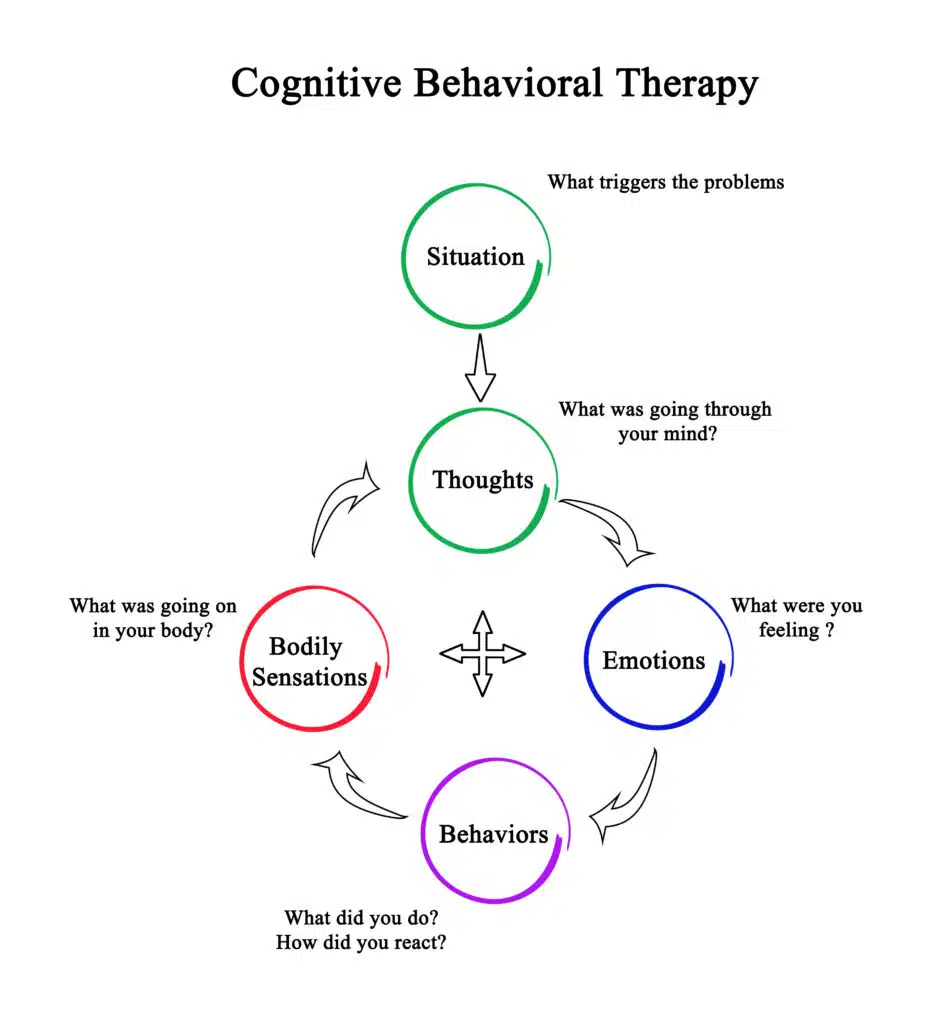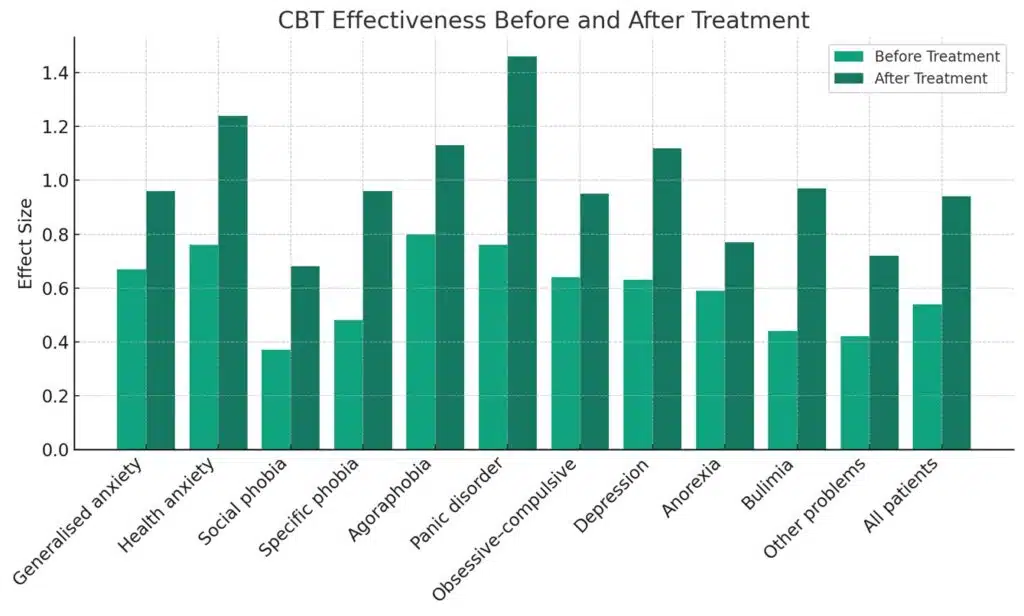<!– JSON-LD markup generated by Google Structured Data Markup Helper. –> <script type=”application/ld+json”> { “@context”: “http://schema.org”, “@type”: “LocalBusiness”, “name”: “Dynamic Psychotherapy”, “telephone”: “0424220314”, “email”: “[email protected]”, “address”: { “@type”: “PostalAddress”, “streetAddress”: “33 Drummond Street”, “addressLocality”: “Carlton”, “addressRegion”: “VIC”, “postalCode”: “3053” }, “url”: “https://www.dynamicpsychotherapy.com.au/” } </script>
<!– JSON-LD markup generated by Google Structured Data Markup Helper. –> <script type=”application/ld+json”> [ { “@context”: “http://schema.org”, “@type”: “Article”, “name”: “CBT Therapists Melbourne: How CBT Therapy Can Improve Mental Health”, “author”: { “@type”: “Person”, “name”: “David Temme” }, “image”: “https://www.dynamicpsychotherapy.com.au/wp-content/uploads/2024/02/CBT-Therapy-Melbourne-Dynamic-Psychotherapy-1901×2048.jpeg.webp”, “articleSection”: “CBT Therapy: is it the Right Approach for You”, “articleBody”: “What is CBT Therapy</STRONG></H2>\n\n\n\n<P class=\”blockart-paragraph blockart-paragraph-215c6f13\”>Cognitive Behavioral Therapy (CBT) is a practical, short-term form of psychotherapy. It aims to identify and challenge unhelpful thoughts and behaviors, teaching individuals how to change these patterns. </P>\n\n\n\n<P class=\”blockart-paragraph blockart-paragraph-be2292f2\”>CBT is effective for a range of issues, including anxiety, depression, phobias, and stress, promoting better emotional and mental well-being. This approach empowers people with strategies to manage their problems in a healthier way, improving their quality of life. </P>\n\n\n\n<P class=\”blockart-paragraph blockart-paragraph-f629bb3a\”>With its foundation in both cognitive and behavioral principles, CBT helps people make lasting changes to their thinking and behavior patterns.</P>\n\n\n\n<H3 id=\”How-does-CBT-Therapy-Work\” class=\”blockart-heading blockart-heading-d7da3c55\”><STRONG>How do our CBT Therapists Work</STRONG></H3>\n\n\n\n<P class=\”blockart-paragraph blockart-paragraph-edb69a9f\”>At its core, CBT Therapy is essentially about teaching people how to catch those negative thoughts that automatically pop into their heads and flip them into positive ones.</P>\n\n\n\n<P class=\”blockart-paragraph blockart-paragraph-9ec59c7b\”>This method not only boosts mood but also transforms responses to stress. It cultivates a collaborative relationship with the therapist, personalising the process to bestow a stronger sense of empowerment and control.</P>\n\n\n\n<H3 class=\”blockart-heading blockart-heading-52308eb2\”><STRONG>What Our CBT Therapists Treat</STRONG></H3>\n\n\n\n<P class=\”blockart-paragraph blockart-paragraph-934cff4a\”>CBT Therapy is renowned for its effectiveness in treating a wide array of mental health conditions, including:</P>\n\n\n\n<UL style=\”font-size:18px\” class=\”brendan-list\”>\n<LI><A href=\”https://www.dynamicpsychotherapy.com.au/what-we-can-help-with/anxiety/\”>Anxiety</A><SUP data-fn=\”08068030-0cd9-416d-8356-f837dddbb833\” class=\”fn\”><A href=\”#08068030-0cd9-416d-8356-f837dddbb833\” id=\”08068030-0cd9-416d-8356-f837dddbb833-link\”>1</A></SUP></LI>\n\n\n\n<LI><A href=\”https://www.dynamicpsychotherapy.com.au/what-we-can-help-with/depression/\”>Depression</A><SUP data-fn=\”8b05ba9a-f49b-4ec6-ab37-575d6aeb87e1\” class=\”fn\”><A href=\”#8b05ba9a-f49b-4ec6-ab37-575d6aeb87e1\” id=\”8b05ba9a-f49b-4ec6-ab37-575d6aeb87e1-link\”>3</A></SUP></LI>\n\n\n\n<LI>Phobias<SUP data-fn=\”95c8519e-26fa-4868-818d-c7a7a2d826bb\” class=\”fn\”><A href=\”#95c8519e-26fa-4868-818d-c7a7a2d826bb\” id=\”95c8519e-26fa-4868-818d-c7a7a2d826bb-link\”>5</A></SUP></LI>\n\n\n\n<LI><A href=\”https://www.dynamicpsychotherapy.com.au/what-we-can-help-with/stress/\”>Stress</A><SUP data-fn=\”e0215876-d224-4053-b405-c1d492f61096\” class=\”fn\”><A href=\”#e0215876-d224-4053-b405-c1d492f61096\” id=\”e0215876-d224-4053-b405-c1d492f61096-link\”>6</A></SUP></LI>\n</UL>\n\n\n\n<P class=\”blockart-paragraph blockart-paragraph-5dfab6e3\”>CBT has also shown success in helping individuals cope with eating disorders<SUP data-fn=\”5ac37791-26e6-4aa9-b36e-1d45f2666a1c\” class=\”fn\”><A href=\”#5ac37791-26e6-4aa9-b36e-1d45f2666a1c\” id=\”5ac37791-26e6-4aa9-b36e-1d45f2666a1c-link\”>8</A></SUP>, addiction<SUP data-fn=\”c845ce26-59c6-430f-a02a-abf8f617f864\” class=\”fn\”><A href=\”#c845ce26-59c6-430f-a02a-abf8f617f864\” id=\”c845ce26-59c6-430f-a02a-abf8f617f864-link\”>9</A></SUP>, and obsessive compulsive disorder<SUP data-fn=\”81cc64e0-2290-4942-9d91-b1497d9f3e9e\” class=\”fn\”><A href=\”#81cc64e0-2290-4942-9d91-b1497d9f3e9e\” id=\”81cc64e0-2290-4942-9d91-b1497d9f3e9e-link\”>10</A></SUP>. </P>\n\n\n\n<P class=\”blockart-paragraph blockart-paragraph-db3a84d1\”>Its practical, skill-based approach equips people with tools to manage and overcome their challenges, making it a versatile treatment option. The therapy’s adaptability and evidence-based success rate underscore its authority and trustworthiness in the mental health field.</P>\n\n\n\n<H3 class=\”blockart-heading blockart-heading-905a4ad6\”><STRONG>How long does CBT Therapy take?</STRONG></H3>\n\n\n\n<P class=\”blockart-paragraph blockart-paragraph-8ed990a0\”>CBT Therapy typically spans from 5 to 20 sessions, with each session lasting about 50 minutes. </P>\n\n\n\n<P class=\”blockart-paragraph blockart-paragraph-68a52002\”>The exact duration depends on the individual’s specific issues and progress. Therapy is goal-oriented and time-limited, focusing on teaching practical skills for managing specific problems. </P>\n\n\n\n<P class=\”blockart-paragraph blockart-paragraph-f9bc865f\”>The structured nature of CBT allows for measurable”, “url”: “” }, { “@context”: “http://schema.org”, “@type”: “Article”, “name”: “CBT Therapists Melbourne: How CBT Therapy Can Improve Mental Health”, “author”: { “@type”: “Person”, “name”: “David Temme” }, “image”: “https://www.dynamicpsychotherapy.com.au/wp-content/uploads/2024/02/CBT-Therapy-Melbourne-Dynamic-Psychotherapy-1901×2048.jpeg.webp”, “articleSection”: “Meet Our Melbourne Team of CBT Therapists at Dynamic Psychotherapy”, “url”: “” }, { “@context”: “http://schema.org”, “@type”: “Article”, “name”: “CBT Therapists Melbourne: How CBT Therapy Can Improve Mental Health”, “author”: { “@type”: “Person”, “name”: “David Temme” }, “image”: [ “data:image/svg+xml,%3Csvg%20xmlns=’http://www.w3.org/2000/svg’%20viewBox=’0%200%201920%201920’%3E%3C/svg%3E”, “data:image/svg+xml,%3Csvg%20xmlns=’http://www.w3.org/2000/svg’%20viewBox=’0%200%201932%201932’%3E%3C/svg%3E”, “data:image/svg+xml,%3Csvg%20xmlns=’http://www.w3.org/2000/svg’%20viewBox=’0%200%202560%202560’%3E%3C/svg%3E” ], “articleSection”: “Overview of CBT Therapy and Introduction”, “url”: “” }, { “@context”: “http://schema.org”, “@type”: “Article”, “name”: “CBT Therapists Melbourne: How CBT Therapy Can Improve Mental Health”, “author”: { “@type”: “Person”, “name”: “David Temme” }, “image”: [ “data:image/svg+xml,%3Csvg%20xmlns=’http://www.w3.org/2000/svg’%20viewBox=’0%200%201920%201920’%3E%3C/svg%3E”, “data:image/svg+xml,%3Csvg%20xmlns=’http://www.w3.org/2000/svg’%20viewBox=’0%200%201932%201932’%3E%3C/svg%3E”, “data:image/svg+xml,%3Csvg%20xmlns=’http://www.w3.org/2000/svg’%20viewBox=’0%200%202560%202560’%3E%3C/svg%3E” ], “articleSection”: “CBT Therapy: An In-Depth Dive”, “url”: “” }, { “@context”: “http://schema.org”, “@type”: “Article”, “name”: “CBT Therapists Melbourne: How CBT Therapy Can Improve Mental Health”, “author”: { “@type”: “Person”, “name”: “David Temme” }, “image”: [ “data:image/svg+xml,%3Csvg%20xmlns=’http://www.w3.org/2000/svg’%20viewBox=’0%200%201920%201920’%3E%3C/svg%3E”, “data:image/svg+xml,%3Csvg%20xmlns=’http://www.w3.org/2000/svg’%20viewBox=’0%200%201932%201932’%3E%3C/svg%3E”, “data:image/svg+xml,%3Csvg%20xmlns=’http://www.w3.org/2000/svg’%20viewBox=’0%200%202560%202560’%3E%3C/svg%3E” ], “articleSection”: “Psychological Disorders Treated by our Melbourne CBT Therapists”, “url”: “” }, { “@context”: “http://schema.org”, “@type”: “Article”, “name”: “CBT Therapists Melbourne: How CBT Therapy Can Improve Mental Health”, “author”: { “@type”: “Person”, “name”: “David Temme” }, “image”: [ “data:image/svg+xml,%3Csvg%20xmlns=’http://www.w3.org/2000/svg’%20viewBox=’0%200%201920%201920’%3E%3C/svg%3E”, “data:image/svg+xml,%3Csvg%20xmlns=’http://www.w3.org/2000/svg’%20viewBox=’0%200%201932%201932’%3E%3C/svg%3E”, “data:image/svg+xml,%3Csvg%20xmlns=’http://www.w3.org/2000/svg’%20viewBox=’0%200%202560%202560’%3E%3C/svg%3E” ], “articleSection”: “Detailed Explanation of CBT Processes and Methodologies”, “url”: “” }, { “@context”: “http://schema.org”, “@type”: “Article”, “name”: “CBT Therapists Melbourne: How CBT Therapy Can Improve Mental Health”, “author”: { “@type”: “Person”, “name”: “David Temme” }, “image”: [ “data:image/svg+xml,%3Csvg%20xmlns=’http://www.w3.org/2000/svg’%20viewBox=’0%200%201920%201920’%3E%3C/svg%3E”, “data:image/svg+xml,%3Csvg%20xmlns=’http://www.w3.org/2000/svg’%20viewBox=’0%200%201932%201932’%3E%3C/svg%3E”, “data:image/svg+xml,%3Csvg%20xmlns=’http://www.w3.org/2000/svg’%20viewBox=’0%200%202560%202560’%3E%3C/svg%3E” ], “articleSection”: “Overview of a Typical CBT Session and Therapy Timeline”, “url”: “” }, { “@context”: “http://schema.org”, “@type”: “Article”, “name”: “CBT Therapists Melbourne: How CBT Therapy Can Improve Mental Health”, “author”: { “@type”: “Person”, “name”: “David Temme” }, “image”: [ “data:image/svg+xml,%3Csvg%20xmlns=’http://www.w3.org/2000/svg’%20viewBox=’0%200%201920%201920’%3E%3C/svg%3E”, “data:image/svg+xml,%3Csvg%20xmlns=’http://www.w3.org/2000/svg’%20viewBox=’0%200%201932%201932’%3E%3C/svg%3E”, “data:image/svg+xml,%3Csvg%20xmlns=’http://www.w3.org/2000/svg’%20viewBox=’0%200%202560%202560’%3E%3C/svg%3E” ], “articleSection”: “CBT Therapy Sessions: What Should You Expect”, “url”: “” }, { “@context”: “http://schema.org”, “@type”: “Article”, “name”: “CBT Therapists Melbourne: How CBT Therapy Can Improve Mental Health”, “author”: { “@type”: “Person”, “name”: “David Temme” }, “image”: [ “data:image/svg+xml,%3Csvg%20xmlns=’http://www.w3.org/2000/svg’%20viewBox=’0%200%201920%201920’%3E%3C/svg%3E”, “data:image/svg+xml,%3Csvg%20xmlns=’http://www.w3.org/2000/svg’%20viewBox=’0%200%201932%201932’%3E%3C/svg%3E”, “data:image/svg+xml,%3Csvg%20xmlns=’http://www.w3.org/2000/svg’%20viewBox=’0%200%202560%202560’%3E%3C/svg%3E” ], “articleSection”: “The Stages of CBT Therapy”, “url”: “” }, { “@context”: “http://schema.org”, “@type”: “Article”, “name”: “CBT Therapists Melbourne: How CBT Therapy Can Improve Mental Health”, “author”: { “@type”: “Person”, “name”: “David Temme” }, “image”: [ “data:image/svg+xml,%3Csvg%20xmlns=’http://www.w3.org/2000/svg’%20viewBox=’0%200%201920%201920’%3E%3C/svg%3E”, “data:image/svg+xml,%3Csvg%20xmlns=’http://www.w3.org/2000/svg’%20viewBox=’0%200%201932%201932’%3E%3C/svg%3E”, “data:image/svg+xml,%3Csvg%20xmlns=’http://www.w3.org/2000/svg’%20viewBox=’0%200%202560%202560’%3E%3C/svg%3E” ], “articleSection”: “CBT Therapy: What it is Commonly Used to Treat”, “url”: “” }, { “@context”: “http://schema.org”, “@type”: “Article”, “name”: “CBT Therapists Melbourne: How CBT Therapy Can Improve Mental Health”, “author”: { “@type”: “Person”, “name”: “David Temme” }, “image”: [ “data:image/svg+xml,%3Csvg%20xmlns=’http://www.w3.org/2000/svg’%20viewBox=’0%200%201920%201920’%3E%3C/svg%3E”, “data:image/svg+xml,%3Csvg%20xmlns=’http://www.w3.org/2000/svg’%20viewBox=’0%200%201932%201932’%3E%3C/svg%3E”, “data:image/svg+xml,%3Csvg%20xmlns=’http://www.w3.org/2000/svg’%20viewBox=’0%200%202560%202560’%3E%3C/svg%3E” ], “articleSection”: “How CBT Therapy Can Help”, “url”: “” }, { “@context”: “http://schema.org”, “@type”: “Article”, “name”: “CBT Therapists Melbourne: How CBT Therapy Can Improve Mental Health”, “author”: { “@type”: “Person”, “name”: “David Temme” }, “image”: [ “data:image/svg+xml,%3Csvg%20xmlns=’http://www.w3.org/2000/svg’%20viewBox=’0%200%201920%201920’%3E%3C/svg%3E”, “data:image/svg+xml,%3Csvg%20xmlns=’http://www.w3.org/2000/svg’%20viewBox=’0%200%201932%201932’%3E%3C/svg%3E”, “data:image/svg+xml,%3Csvg%20xmlns=’http://www.w3.org/2000/svg’%20viewBox=’0%200%202560%202560’%3E%3C/svg%3E” ], “articleSection”: “Getting Started with CBT Therapy at Dynamic Psychotherapy”, “url”: “” }, { “@context”: “http://schema.org”, “@type”: “Article”, “name”: “CBT Therapists Melbourne: How CBT Therapy Can Improve Mental Health”, “author”: { “@type”: “Person”, “name”: “David Temme” }, “image”: [ “data:image/svg+xml,%3Csvg%20xmlns=’http://www.w3.org/2000/svg’%20viewBox=’0%200%201920%201920’%3E%3C/svg%3E”, “data:image/svg+xml,%3Csvg%20xmlns=’http://www.w3.org/2000/svg’%20viewBox=’0%200%201932%201932’%3E%3C/svg%3E”, “data:image/svg+xml,%3Csvg%20xmlns=’http://www.w3.org/2000/svg’%20viewBox=’0%200%202560%202560’%3E%3C/svg%3E” ], “articleSection”: “FAQs About CBT Therapy”, “url”: “” }, { “@context”: “http://schema.org”, “@type”: “Article”, “name”: “CBT Therapists Melbourne: How CBT Therapy Can Improve Mental Health”, “author”: { “@type”: “Person”, “name”: “David Temme” }, “image”: [ “data:image/svg+xml,%3Csvg%20xmlns=’http://www.w3.org/2000/svg’%20viewBox=’0%200%201920%201920’%3E%3C/svg%3E”, “data:image/svg+xml,%3Csvg%20xmlns=’http://www.w3.org/2000/svg’%20viewBox=’0%200%201932%201932’%3E%3C/svg%3E”, “data:image/svg+xml,%3Csvg%20xmlns=’http://www.w3.org/2000/svg’%20viewBox=’0%200%202560%202560’%3E%3C/svg%3E” ], “articleSection”: “Free & Helpful Resources for CBT Therapy”, “url”: “” } ] </script>
CBT Therapists Melbourne: How CBT Therapy Can Improve Mental Health
Table of Contents
- What is CBT Therapy
- Meet Our Team of CBT Therapists
- CBT Therapy: An In-Depth Dive
- Psychological Disorders Treated by CBT
- CBT Processes and Methodologies
- Overview of a CBT Session & Timeline
- What Clients Should Expect
- The Stages of CBT Therapy
- What is CBT Therapy Used to Treat
- How CBT Therapy Can Help
- Booking Your Initial Appointment
- FAQs About CBT Therapy
- Free & Helpful Resources for CBT Therapy

CBT Therapy: is it the Right Approach for You
What is CBT Therapy
Cognitive Behavioral Therapy (CBT) is a practical, short-term form of psychotherapy. It aims to identify and challenge unhelpful thoughts and behaviors, teaching individuals how to change these patterns.
CBT is effective for a range of issues, including anxiety, depression, phobias, and stress, promoting better emotional and mental well-being. This approach empowers people with strategies to manage their problems in a healthier way, improving their quality of life.
With its foundation in both cognitive and behavioral principles, CBT helps people make lasting changes to their thinking and behavior patterns.
How do our CBT Therapists Work
At its core, CBT Therapy is essentially about teaching people how to catch those negative thoughts that automatically pop into their heads and flip them into positive ones.
This method not only boosts mood but also transforms responses to stress. It cultivates a collaborative relationship with the therapist, personalising the process to bestow a stronger sense of empowerment and control.
What Our CBT Therapists Treat
CBT Therapy is renowned for its effectiveness in treating a wide array of mental health conditions, including:
CBT has also shown success in helping individuals cope with eating disorders8, addiction9, and obsessive compulsive disorder10.
Its practical, skill-based approach equips people with tools to manage and overcome their challenges, making it a versatile treatment option. The therapy’s adaptability and evidence-based success rate underscore its authority and trustworthiness in the mental health field.
How long does CBT Therapy take?
CBT Therapy typically spans from 5 to 20 sessions, with each session lasting about 50 minutes.
The exact duration depends on the individual’s specific issues and progress. Therapy is goal-oriented and time-limited, focusing on teaching practical skills for managing specific problems.
The structured nature of CBT allows for measurable improvements, making it a relatively short-term treatment compared to other therapy forms.
Book Now or Learn More
Submit an intake form below or keep reading for a detailed overview of CBT Therapy.
Meet Our Melbourne Team of CBT Therapists at Dynamic Psychotherapy
Get to know our CBT Therapists at Dynamic Psychotherapy, where we anchor our effective treatment in the expertise and kindness of our team. Our CBT therapists aren’t just trained in the latest techniques; they also possess a deep well of expertise and experience. Discover the committed team ready to support your path to mental wellness.
Click on a CBT therapist to view more

David Temme
David is an experienced therapist with a strong focus on CBT Therapy. His extensive training and hands-on experience make him an expert in treating a wide range of mental health conditions, including anxiety, depression and stress management. David’s empathetic approach ensures that you feel comfortable and supported throughout your treatment journey.
Specialisations
David specialises in providing treatment for symptoms of anxiety, depression, stress management, PTSD, borderline personality and other personality disorders with CBT Therapy.
Approaches
CBT Therapy, EMDR Therapy, Schema Therapy, Behavioural Therapies, Psychodynamic Therapy
Qualifications
Accredited Mental Health Social Worker And Psychotherapist

Rachel Greig
Rachel Greig is a psychologist with experience in Cognitive Behavioural Therapy (CBT). Rachel helps clients identify and change negative thought patterns and behaviours to improve emotional well-being and manage mental health conditions like anxiety and depression. Through CBT, Rachel helps individuals to develop practical coping strategies, fostering resilience and positive change.
Specialisations
Rachel has extensive experience using Cognitive Behavioural Therapy (CBT) to effectively treat individuals facing anxiety, depression, stress, panic attacks, and trauma.
Approaches
Cognitive Behavioural Therapy (CBT), Psychodynamic Psychotherapy, Schema Therapy, Acceptance and Commitment Therapy (ACT), and Mindfulness
Qualifications
Clinical Psychology Registrar, MPsych(Clin), MAPS

Claudio Donisi
Claudio is a seasoned psychologist with over fifteen years in the field, working with Cognitive Behavioral Therapy (CBT). His work spans private, educational, and non-profit sectors, focusing on clinical program management and professional education. He applies CBT principles to assist adults, couples, and families facing diverse challenges, emphasising client-led sessions and ownership of change.
Specialisations
Claudio is experienced in applying Cognitive Behavioral Therapy (CBT) with a focus on empowering clients to lead their therapy journey and take ownership of their change.
Approaches
Cognitive Behavioral Therapy (CBT), Interpersonal Psychotherapy, Long-term Psychodynamic Psychotherapy, Integrative Psychotherapy, Family Therapy and Couples Therapy
Qualifications
Bach App Sci, Grad Dip Ed Psych, Grad Dip Ed

The bars represent the effect sizes, indicating the magnitude of change due to CBT:11
- Before Treatment: Effect sizes before the treatment began, providing a baseline for comparison.
- After Treatment: Effect sizes after completing the treatment, indicating the degree of improvement.
Overview of CBT Therapy and Introduction
Developed by Dr. Aaron T. Beck, Cognitive Behavioural Therapy (CBT) is a structured, time-limited therapy that emphasizes the role of thinking in how we feel and what we do.
CBT is based on the concept that your thoughts, feelings, physical sensations, and actions are interconnected.
Negative thoughts and feelings can create a vicious cycle, and CBT aims to break this cycle by teaching you to deal with overwhelming problems in a more positive way, by breaking them down into smaller parts.
CBT helps change negative patterns to improve the way you feel. It differs from other therapies by focusing on current problems and finding practical ways to improve your state of mind on a daily basis. It’s about understanding and changing your current thought patterns, rather than delving into and trying to change the past.
CBT Therapy: An In-Depth Dive
Cognitive Behavioural Therapy: A Proactive Approach to Mental Health
Cognitive Behavioural Therapy (CBT) stands as a transformative approach in mental health care, distinguishing itself through its structured, goal-oriented process.
Central to CBT is the belief that our thoughts, feelings, and actions are interconnected, and that altering negative thought patterns can lead to significant changes in feelings and behaviours.
This therapy is dynamic and proactive, emphasizing practical strategies to address a variety of psychological challenges.
Targeting the Root Problem: Thought Patterns and Behaviours
CBT operates on the principle that by identifying and challenging dysfunctional thoughts, individuals can cultivate healthier thinking patterns.
This process involves recognizing negative or inaccurate thinking and gradually reshaping it. Unlike some forms of therapy that delve deeply into one’s past, CBT is more focused on present thoughts and beliefs.
This contemporary approach equips individuals with the tools to manage their mental health daily.
Empowerment Through Self-Awareness
CBT empowers individuals through self-awareness and self-help strategies. It’s a collaborative therapy, with therapists working alongside clients to identify goals and develop strategies.
Each session aims to build skills that can be applied to everyday situations, fostering long-term mental wellness.
Psychological Disorders Treated by our Melbourne CBT Therapists
Cognitive Behavioural Therapy (CBT) is renowned for its effectiveness in treating a diverse array of mental health conditions. Beyond the commonly known applications for depression and anxiety disorders, CBT’s versatility extends to a broader spectrum of mental health issues.
Common Concerns CBT Therapy Treats
- Mood Disorders: Effectively treats conditions like bipolar disorder and borderline personality disorder.
- Eating Disorders: Addresses issues such as anorexia and bulimia through cognitive restructuring.
- Obsessive-Compulsive Disorder (OCD): Helps manage compulsions and intrusive thoughts.
- Phobias and Panic Disorders: Assists in overcoming irrational fears and panic episodes.
- PTSD and Psychotic Episodes: Aids in coping with trauma and managing psychotic symptoms.
- Sleep and Substance Misuse Issues: Addresses insomnia and alcohol misuse problems.
CBT for Chronic Physical Conditions
CBT also plays a significant role in managing chronic conditions like IBS, Chronic Fatigue Syndrome (CFS), and Fibromyalgia. While it may not directly treat physical symptoms, CBT equips individuals with coping mechanisms to improve their overall quality of life amidst these conditions.
Detailed Explanation of CBT Processes and Methodologies
Navigating the CBT Journey: What to Expect
Cognitive Behavioural Therapy (CBT) is a journey of self-discovery and growth. When embarking on CBT, clients can expect a structured and interactive process. The journey typically begins with an assessment, where the therapist works to understand the client’s unique concerns and goals.
The Core Process: Identifying and Challenging Thoughts
A key part of CBT is identifying negative or unhelpful thought patterns. Clients learn to recognize these patterns and understand their impact on emotions and behaviour. The therapist guides clients in challenging and reframing these thoughts into more positive and realistic ones.
Skill-Building for Lasting Change
CBT is not just about talking; it’s about learning and applying new skills. Clients engage in exercises during sessions and as homework. These activities are designed to practice new ways of thinking and behaving in real-life situations. Over time, these practices lead to lasting change.
Overview of a Typical CBT Session and Therapy Timeline
What to Expect in Sessions with our Melbourne CBT Therapists
Each Cognitive Behavioural Therapy (CBT) session is a step towards mental well-being.
Sessions typically begin with discussing current issues and progress, followed by exploring and addressing specific thoughts or behaviours.
The therapist and client collaboratively work on strategies to challenge negative patterns and reinforce positive changes.
The Therapy Timeline:
CBT usually spans 5 to 20 sessions, each lasting about 50 minutes. The timeline is flexible, tailored to individual needs and progress.
Early sessions often focus on understanding and framing the problem, while later sessions concentrate on applying learned strategies in real-life scenarios.
Setting Realistic Expectations for Outcomes
It’s crucial for clients to have realistic expectations about CBT outcomes. While CBT is effective for many, outcomes vary based on individual circumstances.
Factors like client commitment, the nature of the issue, and the therapeutic relationship play significant roles. Clients should expect gradual progress, as CBT provides tools for managing mental health, focusing on long-term improvement and resilience.
This comprehensive overview highlights the structured yet flexible nature of CBT, the importance of setting realistic expectations, and the commitment required for effective therapy outcomes.
CBT Therapy Sessions: What Should You Expect
Embarking on the CBT Path
Cognitive Behavioural Therapy (CBT) sessions typically occur weekly or bi-weekly. With a course ranging from 5 to 20 sessions, each lasting 50 minutes.
Breaking Down Problems into Manageable Parts
During CBT sessions, clients collaborate with their therapist to dissect their issues into thoughts, physical feelings, and actions. This breakdown facilitates a deep understanding of how certain thought patterns and behaviours impact their life.
Realistic Goal Setting and Skill Application
Together, the client and therapist identify unrealistic or unhelpful aspects of these thoughts and behaviours. The focus then shifts to modifying them. Clients are encouraged to apply these changes in their daily lives, discussing progress in subsequent sessions.
Empowering Clients for Long-Term Success
The ultimate goal of CBT is to equip clients with skills that extend beyond therapy sessions. This empowers them to effectively manage their problems and reduce their negative impact in the long term, fostering sustained well-being even after the treatment concludes.
The Stages of CBT Therapy
- Initial Understanding/Assessment: The therapy starts with an in-depth discussion between the therapist and the client. The goal is to identify the primary issues causing distress. It’s a process of gathering information to form a clear picture of the client’s mental health landscape.
- Exploring Thoughts and Beliefs/Reconceptualisation: Clients are encouraged to delve into their thoughts, emotions, and beliefs related to their problems. This stage is crucial for understanding how these internal dialogues shape their daily life.
- Identifying Negative Patterns/Skills Acquisition: Here, the focus is on pinpointing negative or inaccurate thought patterns. The therapist helps the client recognize these patterns and understand their impact on emotions and behaviour.
- Challenging and Changing/Skills Consolidation: Clients learn techniques to challenge their negative thoughts and beliefs. The aim is to replace them with more positive and realistic ones, altering the way they perceive and react to situations.
- Behaviour Modification/Generalisation and Maintenance: This phase involves identifying behaviours that are a result of negative beliefs and working on changing them. It’s about breaking old habits and forming new, healthier ones.
- Post-Treatment Assessment: Evaluating the effectiveness of the therapy and making adjustments if necessary.
Each stage is designed to build upon the last, ensuring a comprehensive and effective therapeutic experience.
CBT Therapy: What it is Commonly Used to Treat
CBT: A Multifaceted Approach to Mental Health
Cognitive Behavioural Therapy (CBT) is recognized for its effectiveness in treating a wide range of mental health conditions. Beyond its common application in managing depression and anxiety disorders, CBT’s scope extends to more complex conditions.
Addressing a Spectrum of Disorders
CBT has shown significant results in treating bipolar disorder and borderline personality disorder. It’s also effective for eating disorders, including anorexia and bulimia. For those grappling with OCD, panic disorder, phobias, or PTSD, CBT offers a structured approach to manage symptoms.
CBT’s Role in Chronic Physical Conditions
Interestingly, CBT is beneficial for certain long-term physical health conditions such as IBS, chronic fatigue syndrome, and fibromyalgia. While it doesn’t cure the physical symptoms, CBT aids in coping with them more effectively. This is particularly noteworthy for conditions intertwined with psychological stressors.
Enhancing Life Quality in Chronic Illness
In cases of alcohol misuse or sleep issues like insomnia, CBT provides strategies for better management and recovery. By addressing the psychological aspects of these conditions, CBT enhances the overall quality of life and promotes healthier coping mechanisms.
How CBT Therapy Can Help
Personalized CBT Therapy: Tailored to Your Unique Needs
Our CBT Therapists Melbourne working from 33 Drummond Street understand that each individual’s journey with mental health is unique.
Our approach to Cognitive Behavioural Therapy (CBT) is personalised, ensuring that treatment aligns with your specific needs and goals.
We specialise in creating a safe, supportive environment where clients can explore and overcome their challenges.
A Collaborative Therapeutic Experience
CBT is a collaborative therapy, and we emphasize working together to identify patterns, set realistic goals, and develop practical strategies.
Our therapists are partners in your mental health journey, offering consistent support and insights. We believe in empowering our clients with tools and techniques that have lasting impacts.
Our clinic is conveniently located 10 minutes from Melbourne’s CBD for in person appointments.
Like all therapeutic approaches, it is important to consider whether CBT Therapy is the right choice for you. While CBT Therapy is effective for various mental health problems, it’s important to recognize that its success varies.
Advantages of CBT:
- Effective where medication alone falls short.
- Equips with practical life strategies beyond treatment.
- Appointments available online for comfortable, at-home therapy sessions.
- Aims to address not just symptoms but also contributing factors to mental health issues.
- Our therapists tailor CBT to fit individual needs, considering these factors for the most effective treatment.
Considerations for CBT:
- Requires commitment to the process.
- Time investment for regular sessions.
- Involves confronting difficult emotions.
- Focuses on individual change, not systemic or family issues.
Getting Started with CBT Therapy at Dynamic Psychotherapy
Taking the first step towards mental health improvement is crucial, and we’re here to guide you through it. At Dynamic Psychotherapy, we’ve made the process of starting your CBT Therapy journey as straightforward as possible.
Schedule an Initial Appointment with a CBT Therapist
To begin, you can submit a request form here, giving us an idea of your availability and specific needs.
Contact Us
Alternatively, you can reach out to us directly by calling 0424 220 314 or emailing us at: [email protected].
Our dedicated team is here to answer any questions you may have about CBT Therapy.
Consultation and Assessment
Once your appointment is scheduled, you’ll meet with one of our qualified CBT therapists Melbourne based for an initial consultation. This session will help us understand your needs better and determine the most effective treatment plan for you. You can learn more about Dynamic Psychotherapy Melbourne and our appointments on our homepage.
Begin Your CBT Journey
After the initial consultation, you’ll embark on your CBT Therapy journey, tailored to address your specific mental health conditions, whether it’s anxiety, depression, or other mental health concerns.
FAQs About CBT Therapy
What is CBT therapy technique?
Cognitive Behavioural Therapy (CBT) is a technique focusing on changing negative thought patterns and behaviours by identifying, challenging, and altering unhelpful beliefs and actions.
What is an example of a CBT treatment?
An example includes treating anxiety through identifying irrational fears, challenging these thoughts, and gradually exposing the client to feared situations.
What are the 5 steps of CBT?
The steps are identifying troubling situations, becoming aware of thoughts and emotions, identifying negative thinking, reshaping this thinking, and changing behaviours.
What does a CBT therapist do?
A CBT therapist helps clients identify negative thoughts, provides tools to challenge them, and guides in adopting healthier behaviours and coping strategies.
What are the disadvantages of CBT?
CBT requires active participation, which can be challenging. It may not address deeper underlying issues and might not suit complex mental health conditions.
What are the 7 skills of CBT?
They include cognitive restructuring, behavioural activation, problem-solving, exposure, relaxation techniques, assertiveness training, and mindfulness.
Free & Helpful Resources for CBT Therapy
Queensland Government Mental Wellbeing Resources
- Queensland Government Resources
Offers a variety of mental health and wellbeing resources, including self-help tools and information guides.
Get Self Help CBT Worksheets
- Get Self Help
Provides a wide range of free downloadable CBT worksheets and tools for various mental health conditions.
Positive Psychology CBT Techniques and Worksheets
- Positive Psychology
Features numerous CBT techniques and worksheets for therapeutic self-help and personal growth.
Black Dog Institute’s myCompass
- Black Dog Institute
An interactive self-help service that tailors professional psychological advice to individual needs.
Living Life to the Full: Online CBT Courses
- Living Life to the Full
Offers online courses and resources focusing on life skills and cognitive behavioural therapy principles.
Centre for Clinical Interventions
- Centre for Clinical Interventions
Provides self-help resources for mental health issues, including detailed modules and information sheets.
We Heart CBT: Self-Help Resources
- We Heart CBT
Features a collection of self-help resources and tools based on cognitive behavioural therapy principles.
Each of these resources offers unique tools and information to assist individuals in understanding and applying CBT techniques for improved mental health.
Disclaimer
We Are Not Responsible for websites we link to. Please be aware that we have no control over the content of these websites or resources. The content may change, and we are not responsible for any alterations, or the reliability of the information provided.
Have any questions, or ready to book an Appointment?
Our friendly Reception team is here to help you.
- N-CBT. (n.d.). N-CBT research packet new ABCs manuscript advance copy. Retrieved August 15, 2016, from https://web.archive.org/web/20160815153718/http://www.n-cbt.com/uploads/7/8/1/8/7818585/n-cbt_researchpacket_newabcsmanuscript_advancecopy.pdf ↩︎
- ↩︎
- Gartlehner, G., Wagner, G., Matyas, N., Titscher, V., Greimel, J., Lux, L., et al. (2017, June). Pharmacological and non-pharmacological treatments for major depressive disorder: Review of systematic reviews. BMJ Open, 7(6), e014912. https://doi.org/10.1136/bmjopen-2016-014912 ↩︎
- ↩︎
- Priyamvada, R., Kumari, S., Prakash, J., & Chaudhury, S. (2009). Cognitive behavioral therapy in the treatment of social phobia. Indian Psychiatry Journal, 18(1), 60-63. https://doi.org/10.4103/0972-6748.57863 ↩︎
- Hofmann, S.G., Asnaani, A., Vonk, I.J., Sawyer, A.T., & Fang, A. (2012, October 1). The Efficacy of Cognitive Behavioral Therapy: A Review of Meta-analyses. Cognitive Therapy and Research, 36(5), 427-440. https://doi.org/10.1007/s10608-012-9476-1 ↩︎
- ↩︎
- Linardon, J., Wade, T. D., de la Piedad Garcia, X., & Brennan, L. (2017). The efficacy of cognitive-behavioral therapy for eating disorders: A systematic review and meta-analysis. Journal of Consulting and Clinical Psychology, 85(11), 1080–1094. https://doi.org/10.1037/ccp0000245 ↩︎
- Killen, J. D., Fortmann, S. P., Schatzberg, A. F., Arredondo, C., Murphy, G., Hayward, C., Celio, M., Cromp, D., Fong, D., & Pandurangi, M. (2008, July 15). Extended cognitive behavior therapy for cigarette smoking cessation. Addiction. https://doi.org/10.1111/j.1360-0443.2008.02273.x ↩︎
- Foa, E.B. (2010). Cognitive behavioral therapy of obsessive-compulsive disorder. Dialogues in Clinical Neuroscience, 12(2), 199-207. https://doi.org/10.31887/DCNS.2010.12.2/efoa ↩︎
- Westbrook, D., & Kirk, J. (2005). The clinical effectiveness of cognitive behaviour therapy: Outcome for a large sample of adults treated in routine practice. Behaviour Research and Therapy, 43(10), 1243-1261. https://doi.org/10.1016/j.brat.2004.09.006 ↩︎
